A ll names in this book are pseudonyms, created by a random name generator. Any resemblance to those of actual persons, living or dead, is entirely coincidental. Indeed, finding your name in this book is the one way to be certain that you are not in it.
I NTRODUCTION
L ove and marriage in contemporary society create a world of questions. How do I know if the person I love is the right one for me? How can my partner and I communicate more effectively? How should we deal with conflicts that inevitably arise? What will get us through the predictable stresses of marriage, such as child-rearing, work problems, money issues, and in-laws? How do we keep our marriage vibrant and interesting? And the most fundamental question of all: How can two very different individuals come together and create a relationship that lasts a lifetime?
I wrote this book to provide answers to questions like these. But first I had to answer a question myself.
Another marriage advice book? When I set out on this projectwhich lasted years and involved interviews with hundreds of peoplethats the question some of my friends and academic colleagues asked me. Do we really need another how-to volume for creating a happy marriage? Every bookstore has a whole section devoted to this topic. So, they asked, what can you hope to add to the overflowing shelves of marriage advice?
Theres a compelling answer to that questionand it came from readers like you. Several years ago, I published a book called 30 Lessons for Living: Tried and True Advice from the Wisest Americans. For that book, I surveyed over twelve hundred older people, asking them some of lifes biggest questions: What are the most important lessons you have learned over the course of your life? What are the values and principles you would like to pass on to future generations? How can young people get to the end of life without regrets? I also asked them for their practical advice on specific topics: work, child-rearing, agingand marriage.
It was the last topic that really captured readers attention. Many people told me that after reading the marriage advice, they bought the book for friends and family membersjust for that one chapter. I heard that the elders lessons about love and marriage helped single people who were looking for love, as well as those in committed relationships who were trying to make them last a lifetime. The book became a wedding gift. Some couples were even inspired to create a Leave Your Lessons station at the wedding reception, where guests could record their advice for the newlyweds.
Over and over, readers of 30 Lessons for Living told me, That chapter wasnt enoughwhy dont you write a whole book about the elders advice for love, relationships, and marriage? I will be forever grateful for their persistence because it led me on a fascinating new journey. You hold in your hand the product of my quest: a guidebook from the wisest Americans on finding the right partner, establishing the groundwork for a lasting relationship, and keeping the spark alive for a lifetime.
In contemporary society, the search for love and lasting relationships has become complex and difficult. Shifting norms about marriage and the rise of social media have made finding a mate and deciding to commit more confusing. In our desire for relationship guidance, we turn to bookstores and go online. Ive done so myself and come away disappointed. The available advice often comes in the form of pop psychology or books by celebrities on what, in their opinion, made their own glamorous marriages work so well.
The more I pored over these volumes, the more I felt that something was missing: the voice of lived experience. I wondered: Could we learn from people who have navigated the turbulent waters of marriage and reached the end of the voyage? Why not go to the sourcethe oldest Americans who have vast experience of love and committed relationships? I believed it was possible to collect that wisdom systematically and translate it into practical advice for people trying to get and stay happily married in an uncertain and difficult world.
When asked about what qualifies me to write a marriage advice book, my half-joking response has become: I may not know that much about marriage myselfbut I know a whole lot of very wise people who do. For this book, I conducted the largest in-depth interview study ever done of people in very long marriageshundreds of individuals who have been in one relationship for thirty, forty, fifty yearsand more. I wasnt interested in just a handful of stories; instead, I wanted to take advantage of the wisdom of crowds, collecting the love and relationship advice of a large and varied cross section of long-married elders.
But I didnt stop there. Because one problem Ive noticed about marriage advice books is that they tend to focus either on the very good or the very badbut not both. Some authors have selected successful long-married couples and hypothesized what makes them so happy. Other writers (typically marital counselors) base their books on the problems brought to them by troubled couples. But to offer the best possible guidance, whats needed is the full range of marriage experience, from the blissful partners who have been happy for a half century to someone who has wound up alone and unsatisfied after serial marriages and divorces.
To capture this range of experience, I created the Marriage Advice Project. Using social science research methods, I amassed a group of over seven hundred older Americans who were interviewed in-depth. (The methods are detailed in the appendix to this book.) One sample consisted of individuals who were currently in long marriages. Because many very old people are widowed, I also included a sample of elders who were once in long marriages but whose spouse had died. The average length of the marriages was forty-three years; the longest marriage was a one-hundred-year-old woman married to her ninety-eight-year-old husband for seventy-six years. I tapped these two groups of people to get answers to the questions, How did you do it? What helped you make the promise until death do us part a reality?


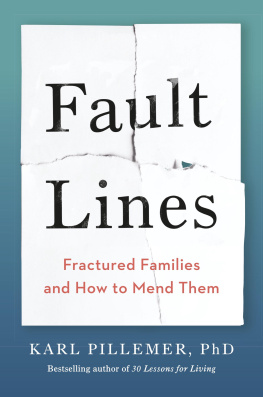
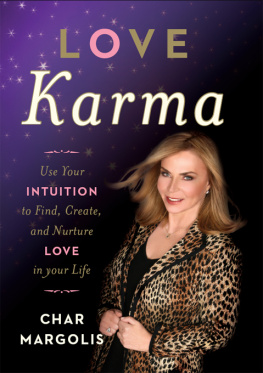
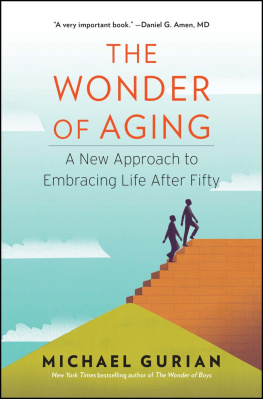
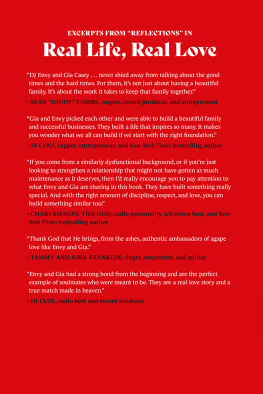
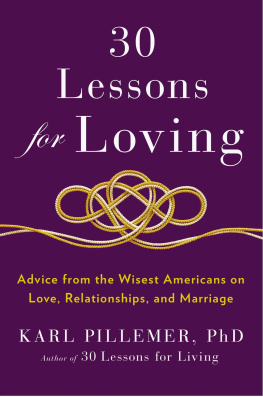
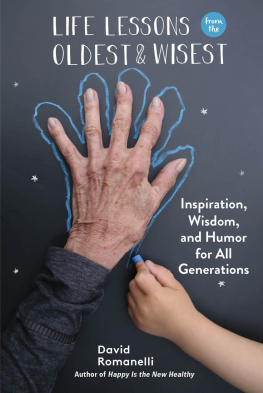
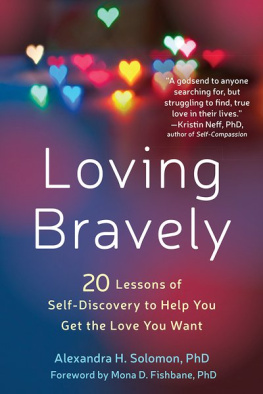
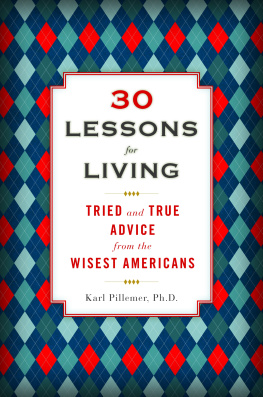


 REGISTERED TRADEMARKMARCA REGISTRADA
REGISTERED TRADEMARKMARCA REGISTRADA